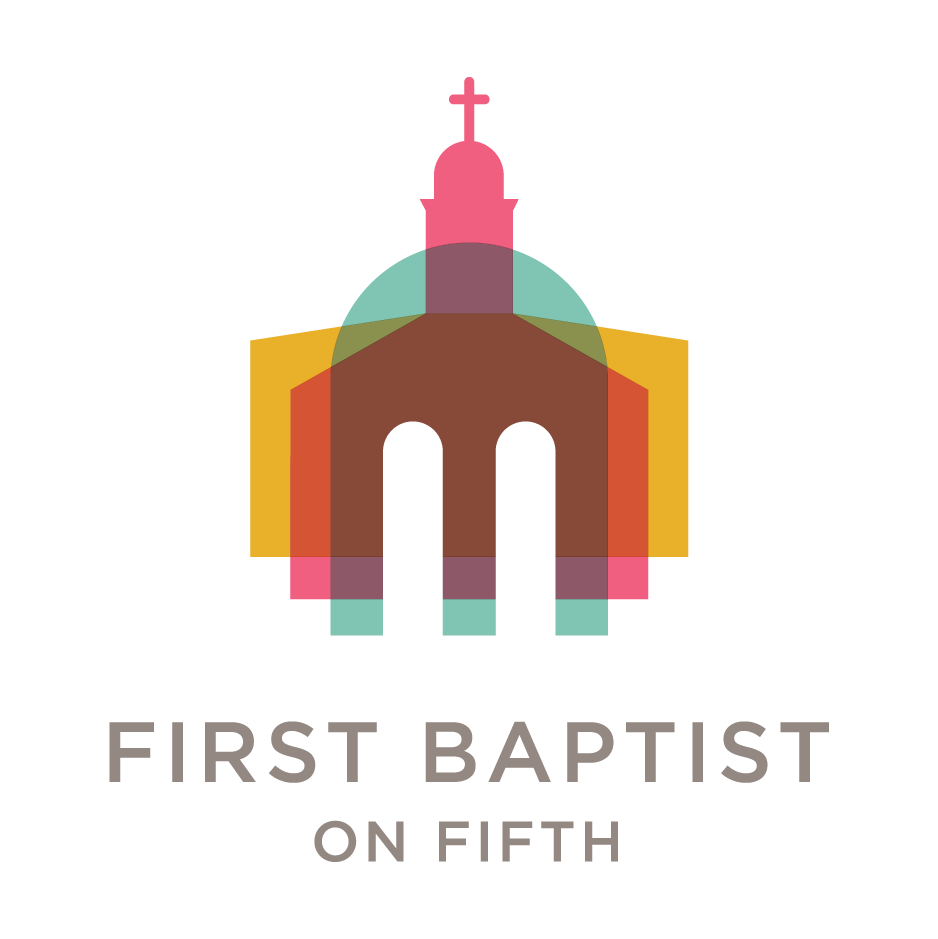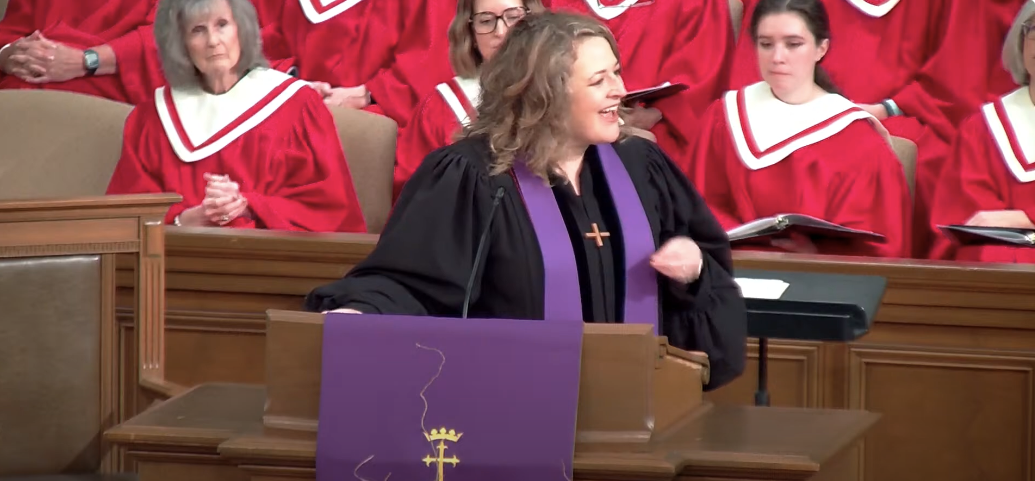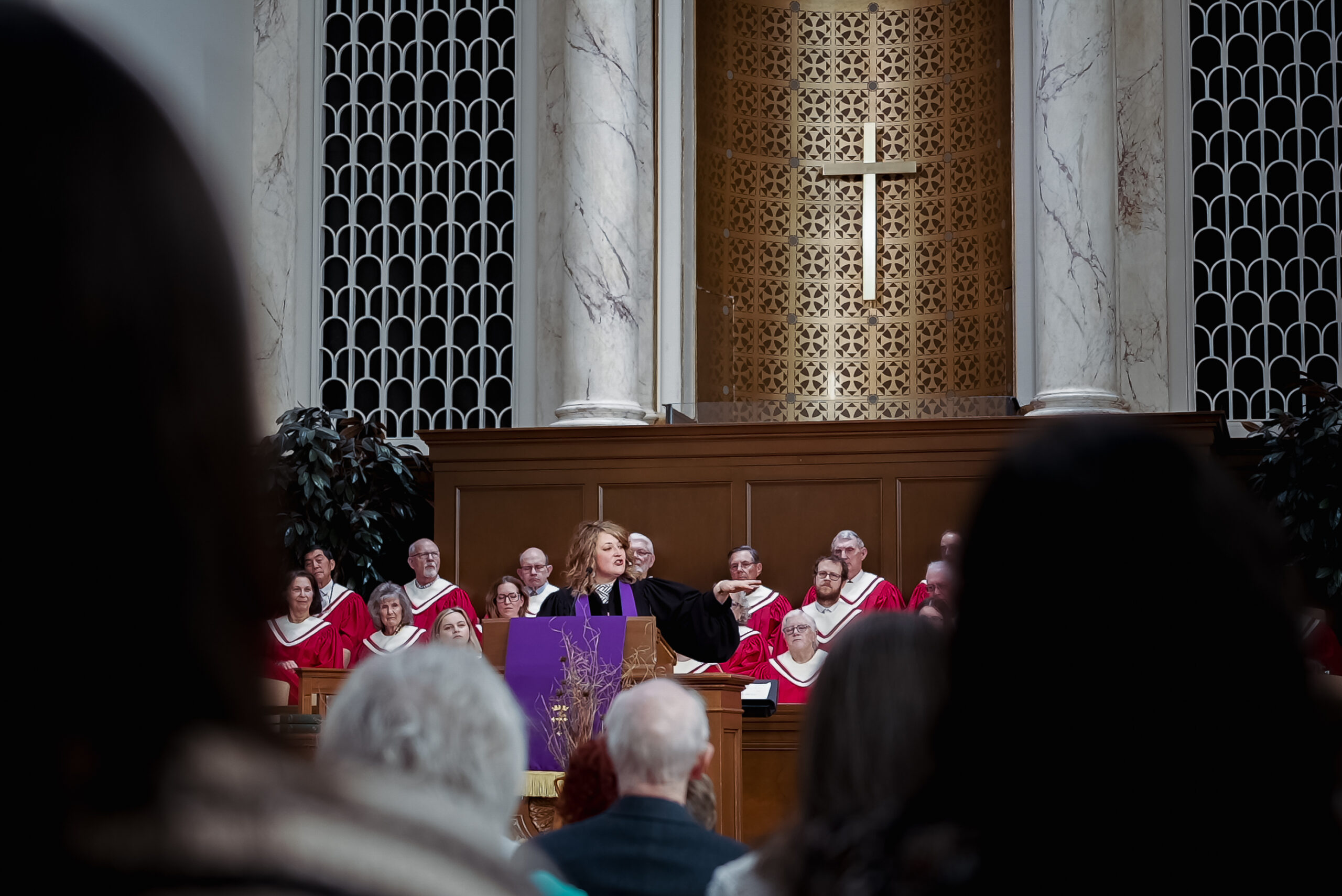I.Yesterday morning, I joined with hundreds of others to remember the good, good life of Wade Stokes, a friend who died after a startlingly brief bout of cancer at the young age of 63. For more than 20 years, Wade served in university advancement at Wake Forest, most memorably as the first Director of Development for the Divinity School. When our friend and founding Dean of the Divinity School, Bill Leonard, hired Wade, the divinity school was just an idea. No faculty, no buildings, no coursework, no schedule, no students – only an audacious vision with equally-audacious leaders to bring it to life.
As Bill eulogized Wade yesterday, he told a story of fundraising for the school alongside Wade in those early years. Tenacious and charming and faithful and endlessly committed to seeing this vision made real, Wade had reached out to a friend and fellow Wake grad named Rebecca to connect him with a guy she knew who Wade knew had ample resources. Rebecca scoffed. “That guy?,” she said with an eye roll. “You don’t want to ask that guy for money,” and goes on to describe the questionable guy, his stingy, generally-displeasing posture in the world. “Oh no no no,” Wade said in return, throwing caution to the wind with a twinkle in his eye. “That’s exactly why I want to meet with him! The Devil’s had that money long enough!”1
The life Wade lived made known the abundance of God, and Wade was indiscriminate in inviting others into it – from bean counters and tightwads to imprudent spenders and prodigal squanderers – all knowing that the invitation to abundance is about the givers and those (like me) whose lives were changed by the gift.
II.But scarcity is alluring, isn’t it? Rarely do we buy into the myth intentionally, though. It’s not like many of us set out to consider that the good things in life are in short supply. Yet over time, our subconscious practice of scarcity slips into every corner of the modern human condition. Scarcity often fuels the prudent investment, the cautious decision, the guarded relationship – convincing us that we won’t have enough, so we need to parse out, and play it safe, and scrimp here and there, and not go overboard, and retrench until circumstances improve.
But abundance, you see, tells another story.2 It knows the devil of scarcity’s had that money long enough. Because we who live our lives in the way of Jesus know that our story began in the extravagant, unending love of God who loved the world into being. Whose love overflowed as it became flesh in Jesus and drew near to the world. Who was born and lived and taught and healed and feasted and loved and died so that we might know how to do the same.
Which is precisely where we meet Jesus today, in the warm embrace of his close friends, Mary, Martha, and Lazarus. Not a handful of days prior, Jesus stood with Mary and Martha as he called Lazarus out of the tomb, back from the dead, unbound and set free to live again. It was a sign, John tells us, of what was to come.
And yet, not everyone celebrated as Lazarus breathed again. Anxious about their own safety, some who saw it ran breathlessly to the Pharisees to tattle. “Better for one man to die,” Caiaphas, the chief priest decides, “than for the whole nation to be destroyed.” From that moment on, Jesus was a wanted man; if anyone saw him, he was to be reported and arrested. And a day after this gathering with his friends, he’ll sit atop a donkey and ride into Jerusalem, awash in hosannas and awaiting his death.
Yet sandwiched right in between, Jesus goes to Bethany. Far from the safety of the wilderness, Bethany was just a couple of miles from Jerusalem, meaning – right in the heart of danger, of risk, of scarcity around him. It’s the first time the friends have been back together since Lazarus came back to life, which was surely the impetus for the dinner party. The spread would have been full – bowls of olives and fresh pomegranates, roasted lamb if they were lucky, warm bread and pools of oil for dipping, wine to wash it all down. Perhaps the conversation among the dinner guests lingered on the miracle they’d just lived through, or their plans for Passover the following week. That is, until Mary entered the room.
John tells us she carried a pound of costly perfume, made of pure nard. At that quantity, this would be a lifetime’s supply – used cautiously for anointing, just a bit at a time. But without an ounce of hesitation, she poured it all, not just a few drops. And on Jesus’s feet, not just his head. And wiped it with her hair, not just with her hands. The scent filled the air; it was as sensual, lavish, loving, and wasteful a scene as one might imagine.
Wasteful was Judas’s take. “Why didn’t you sell it for three hundred denarii and that money given to the poor?”, he asked accusingly and piously. He counts the pennies, he knows how much it’s worth, he understands how that money could be otherwise spent! Any member of the temple’s Finance Committee could see that! Wouldn’t any faithful follower agree?
He’s got a point. The faithful have worried about the best use of their dollars and cents ever since, particularly when markets plunge and costs mount and reason takes over. But sometimes, it seems, the most faithful response to love is, quite simply, abundance.
Jesus quotes from Deuteronomy when he says, ‘the poor will always be with you.’ He’s not being callous, of course, because the rest of the verse in Deuteronomy exhorts the faithful to “open wide your hand to your brother, to the needy and the poor in the land.” Nor is he being cautious, suggesting that only a bit, a prudent amount would have sufficed. Rather, Jesus opens wide his praise of Mary. “She is anticipating the day of my burial. You’ll always have the poor; you won’t always have me.”
III.I’ve got to believe that second only to Jesus, Mary is the prophet of abundance. She’s the one who counted the cost, and knew the risk to her reputation, and responds anyways. Theologian Paul Tillich said that Mary “has performed an act of holy waste growing out of the abundance of her heart. Judas, on the other hand, has his emotional life under control… Jesus alone knows that without the abundance of heart, nothing great can happen. He knows that calculating love is not love at all. The history of humankind,” Tillich continues, “is the history of men and women who wasted themselves and were not afraid to do so. They did not fear to waste themselves in the service of a new creation. They wasted out of the fullness of their hearts.”3
Friends, this Lent we’ve wondered together what needs clearing out. What crowds our hearts and homes and hands and lives so much that there’s just no room for love to grow. And the longer I live, the more I think the 21st century American Christian needs to clear out our caution – well-meaning and prudent, of course, but blocking the flow of Jesus’s abundance. That caution makes us slower to respond to injustice, quieter to speak up in the face of evil, more measured in our hope because we’ve lived a bit. It keeps the coffers full and the faithful busy, lest our hearts run too wild or fast in the way of Love. It domesticates our love for Jesus, so it wouldn’t dare be too cringe, as the kids say.
And yet, participating in the abundance of Jesus has the power to change us from the inside out. It loosens our fear and makes prodigal our compassion. It retrains the narrative we’re living – this American story of fear and threat and greed and bootstraps and holding onto every last little bit – and gifts us with open hands, all the more able to praise, to help, to love the world around us. It allows us to look the devil of caution squarely in the face and says, “you’ve had my heart long enough.”
What would it look like or feel like or sound like or smell like to clear out your caution and practice abundance instead? I’ve bet all the other dinner guests in the home that day remembered the abundance of Jesus every time thereafter that they caught the scent of pure nard. So what is a simple practice you might do to remember abundance? If not expensive perfume poured on the feet of Christ, maybe it looks like space carved into your busy lives to try a spiritual practice that makes you feel nervous or unreserved, like praying aloud or alone, writing to or drawing of or dancing with God, taking on a new spiritual discipline, or asking God to equip you to do that which scares you. Perhaps it sounds like hymns sung with abandon or love verbalized more directly to spouse and family and friends. Or maybe each night at the dinner table, you and your family share where you experienced abundance that day, where you “risked something big for something good.” How will you love Jesus, and love the world that God so loved – and do it not with caution, but with abundance?
It takes some practice, because our minds and hearts have been trained for caution, for rationing instead of feasting. Remember the words written a long time ago by an anonymous poet – the “Table Rules for Little Folk”?
In silence I must take my seat
And give God thanks for what I eat,
Must for my food in patience wait
Till I am asked to hand my plate
I must not scold, nor whine, nor pout,
Nor move my chair, nor plate about,
With knife, or fork, or napkin ring,
I must not play, nor must I sing.
I must not speak a useless word,
For children must be seen, not heard.
I must not talk about my food,
Nor fret, if I don’t think it good.
I must not say ‘the bread is old’,
‘The tea is hot’-‘the coffee cold’.
I must not cry for this, or that,
Nor murmur if my meat be fat.
My mouth with food I mustn’t crowd,
Nor while I’m eating speak aloud.
Must turn my head to cough, or sneeze,
And when I ask, say ‘If you please’.
The table cloth I must not spoil,
Nor with my food my fingers soil.
Must keep my seat when I have done,
Nor round the table sport, or run.
When told to rise, then I must put
The chair away with noiseless food.
And lift my heart to God above
In praise for all His wondrous love.4
IV.Those rules sound like the ones practiced in 19th century Denmark, where two sisters lived in a rural town with their father, the local pastor of their village church. They were a puritanical people, choosing a strict and spare lifestyle so as to give as much as they could to help the needy in their community. Nowhere was that more evident than in their daily meal of bland fish soup and gruel. Unlike others, these sisters had the opportunity to leave the village as they became adults, but out of obligation, they agreed to stay for the sake of their dad and their church.
More than 25 years pass. Pastor has died, and those two sisters have become the church leaders. One night in the midst of a howling storm, the sisters hear a knock on their door. Barely standing and half-dead is Babette, a refugee from the French Civil War left with nothing, just begging the sisters to take her in and give her a job. The sisters had no money for Babette, but they agreed to let her work for her room and board. Eager to please her new housemates, Babette learns how to make the fish soup and gruel. She takes over the shopping, freeing the sisters to spend more time with their parishioners. And slowly but unmistakably, a change begins to creep into their midst. The fish soup doesn’t taste as bland. Money is left over. The grumbling and bickering that once filled the dinner table was silenced by the warm presence of Babette.
One day, Babette gets a letter from France telling her that she’d won the lottery and would soon be the recipient of some 10,000 francs! Surely Babette would leave the sisters, her need for room and board abated now by the unexpected windfall. But instead, she asked to fix a meal and make a trip back to France to prepare.
Soon after, boxes and crates bearing the most unique delicacies began to arrive from France: the finest china, flawless crystal, luxurious linens, and the very best ingredients that money could buy. Despite even more protests from the sisters, Babette prepares for them the feast of a lifetime. The table groaned under the platters of quail, the steaming-hot turtle soup, the mounds of fruit and cheeses, a heaping of pastries and baked goods, and the perfect wine to compliment each of the six courses.
Well despite their very best efforts to resist such a meal, the sisters and parishioners simply cannot keep from enjoying it. The whole experience transforms them — resentments lift, anger softens, grudges give way to forgiveness. And surprise of all surprises, not only do they learn that Babette was the famous former Chef of the Café Anglais, the most prestigious restaurant in France, but also that she had spent every cent of those 10,000 francs on the meal itself! This poor refugee became like another: expending extravagant love, emptying oneself, taking on the form of a servant, and preparing the table of Love where abundance is served.5
V.“Without the abundance and heart, nothing great can happen,” Paul Tillich says. But soon we’ll look to the cross, where Love made flesh offered the most lavish, extravagant gift of abundance for the sake of the world. “Wasteful,” some called it. “Foolish,” others said. But to us who are being saved, it is the power of God. Amen!







